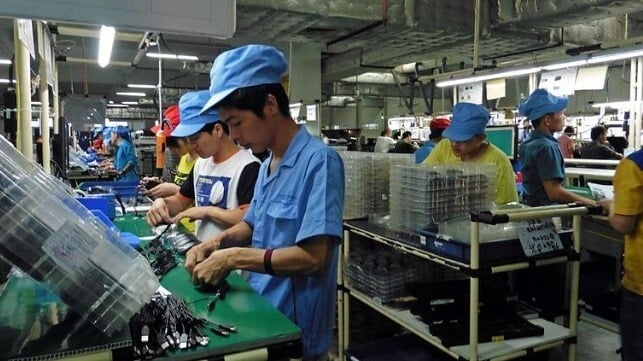Reshoring Can Reduce Freight Costs - But it May Prove Difficult

In the aftermath of the indiscriminate lockdowns in major manufacturing hubs in China, most western companies are examining reshoring and other alternative sourcing options. Reliability in supply chains is now a major priority, despite the cheap labor that once made many manufacturers prefer China.
Unfortunately, however, some consumer industries are finding the hurdles associated with shifting out of China insurmountable.
Inter Parfums, the New York-based global manufacturer of perfumes and cosmetics, has recently made a resolve to leave China. When Shanghai went into a lockdown two months ago, millions of dollars’ worth of designer perfumes and cologne stocked in warehouses became inaccessible. As a result, Inter Parfums lost significant sales during the period.
“How good is it to have cheaper components when you cannot get them? For a consumer products company like us, you need to have super stability in supply,” Jean Madar, founder and chairman of Inter Parfums, told The Wall Street Journal.
But to manufacture a bottle of perfume, a company like Inter Parfums requires 15 to 25 separate glass, plastic and metal components, most of which are historically sourced from China. Thus, building a full US based supply base remains unattainable in the near future.
A country wanting a key manufacturer to re-shore production would also need to support their suppliers, who may also need to co-locate for the supply chain to function smoothly. This regulatory puzzle is unsolved in many countries and remains out of control for companies wanting to re-locate.
Between March and April, McKinsey conducted a survey of supply-chain executives, and 20 percent revealed they had brought some production back to a nearby country in the past year. What was apparent though is that there are still multiple limits and roadblocks to re-shoring. Hence, companies with narrow profit margins can find betting against China a risky move. The choice on economics will always reign supreme.
For instance, Intel has been intent to shift its chip manufacturing back to the US. However, last month it announced delaying indefinitely a groundbreaking ceremony for a multi-billion chip factory in Ohio. Intel cited frustration over uncertainty in Congress over passing of the Bipartisan Innovation Act, necessary to support the U.S chip manufacturing industry.
Peloton, the American exercise equipment and media company, has also scrapped plans for a $400 million factory in Ohio. According to Peloton, uprooting its China-based factories and supply chains is harder in practice.

that matters most
Get the latest maritime news delivered to your inbox daily.
Other obvious hurdles in shifting supply chains, specifically for US based companies, is the high cost of labor and real estate. Further, the varied regulatory environment between different states can prove difficult for manufacturers keen to have all their suppliers based in the US, according to Daniel Swan, manufacturing and supply chain expert at Mckinsey.
Top image: Factory in Shenzhen (File image courtesy Chris / CC BY 2.0)
